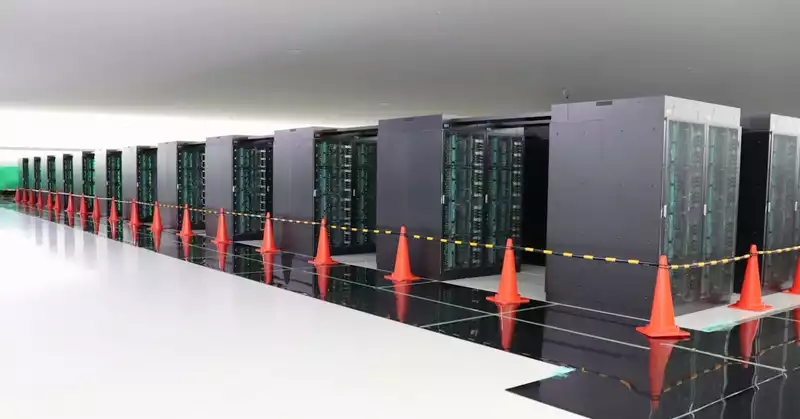Chances are very good that your smartphone is running on ARM hardware. Apple announced yesterday that it has begun the transition from using Intel CPUs to ARM. Another addition to the world's fastest supercomputers.
This is according to the Top500 project, which has released the 55th edition of its supercomputer rankings. The current leader is Japan's Fugaku, jointly developed by RIKEN and Fujitsu; it is the first ever to be powered by ARM hardware, and one of only four supercomputers in total to run on ARM.
Specifically, Fujitsu's A64FX system-on-chip (SoC) performs Fugaku's numerical computations. Each SoC contains 48 cores, 152,064 to be exact, with room for an additional 6,912 inside the supercomputer.
This comes to a staggering 7,299,072 cores (7,630,848 if you add cores to the remaining nodes); as measured by Top500, the current Fugaku can process over 415.5 trillion calculations per second. [Previously, the leader was Oak Ridge National Laboratory's Summit supercomputer, which combines an IBM Power9 CPU with an Nvidia Tesla V100 GPU. Fugaku is about 2.8 times more powerful than Summit. However, this performance difference is not surprising, as Fugaku has a little over three times as many cores as Summit.
While certainly impressive, Fugaku's time in the top spot is likely to be short-lived. This is because next year the U.S. Department of Energy, in cooperation with AMD and Cray, will develop a supercomputer called Frontier that promises 1.5 exaflops of performance. This would be about three times the performance of Fugaku.
Nevertheless, this is an impressive achievement for ARM.
"Today's announcement is a statement of direction for the industry, and through this joint effort, we have a common goal of providing greater choice and flexibility for multiple segments of the infrastructure market," ARM said.
One has to imagine that there is more than enough processing power to handle multiple instances of Crysis. However, with a new Crysis in the works, Fugaku will instead be used for drug therapy research and climate prediction. Fugaku has already been used in the fight against Covid-19 and will continue to be used in such efforts.


Comments